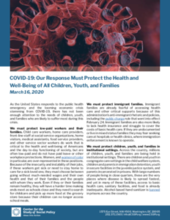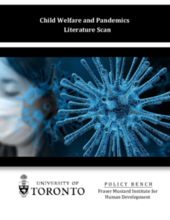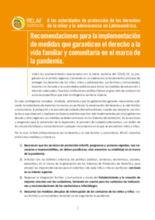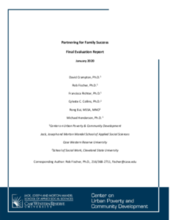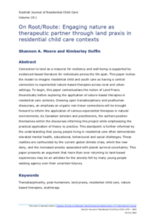This page contains documents and other resources related to children's care in the Americas. Browse resources by region, country, or category.
Displaying 1131 - 1140 of 3191
This webpage from Be Strong Families features resources for families during the COVID-19 crisis.
In this statement on the COVID-19 pandemic, the U.S. Center for the Study of Social Policy calls for more support for those who are likely to be hurt most by the current crisis, particularly low-income families.
This literature scan identifies and synthesizes existing literature examining the effects of pandemics and the identification of policy solutions to mitigate their effects on a well defined group of Canada’s population—children in the care of Canada’s child welfare system.
This free collection of articles includes relevant psychological research published across the APA Journals portfolio that are relevant to the topic COVID-19.
Este llamado a las autoridades públicas presenta recomendaciones de RELAF para tomar las medidas de prevención y atención adecuadas para garantizar el derecho a la vida familiar y comunitaria en el marco de la pandemia.
This statement from Jack P. Shonkoff of the Center on the Developing Child at Harvard University notes that the Center is "assembling easily accessible and actionable scientific knowledge for supporting the developmental needs of young children and their families in this current context."
This resource offers information on supporting and protecting children’s emotional well-being as this public health crisis unfolds.
This book brings together knowledge of how modern countries in Europe and the United States deal with the issue of errors and mistakes in child protection in a cross-national perspective.
This report presents the results of an evaluation of the Partnering for Family Success (PFS) program, which was conceived as an innovative intervention to address the particular needs of housing unstable families who had a child in the custody of the county child welfare agency.
This paper invites the reader to imagine residential child and youth care as having a central connection to experiential nature-based therapies across rural and urban settings.


